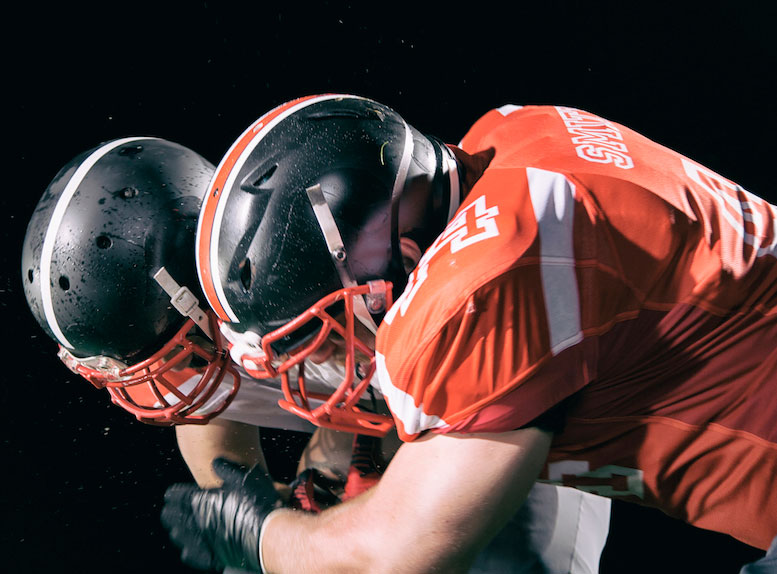What is a sports neurologist? With the dramatic increase in head injuries in football and other sports, this relatively new subspecialty of neurology has become increasingly prominent.
Dr. Stephanie Alessi-Larosa is a sports neurologist with the Hartford Healthcare Ayer Neuroscience Institute:
Q. Sports neurology is a somewhat new field. Why is this so important for athletes?
A. Sports neurologists are trained in the diagnosis and management of neurologic conditions in athletes, such as concussions. I am a board-certified neurologist that treats all neurologic conditions, but I have completed a fellowship to obtain a subspecialty in managing neurologic conditions that arise in athletes either from their participation in sports (such as concussions) or, for example, migraines or epilepsy that occur in the general population that requires specialized management by a sports neurologist for athletes with these conditions to perform highly.
Q. You are fellowship trained as a sports neurologist and will being treating athletes. When should someone see you?
A. Being fellowship trained, I have spent time at countless live competitions with athletes from the youth level through collegiate and professional monitoring for acute concussions or other acute neurologic issues.
The sooner the athlete or anyone with a concussion is seen by a physician, the better the outcome. Any patient of any age and any level of athleticism/physical activity should come see me if they have or may have a neurologic diagnosis (such as migraine, epilepsy, muscular disease) or have had a concussion or are suffering from prolonged symptoms such as from post-concussion syndrome.
Q. What are some of the other conditions you treat as a sports neurologist?
A. Some of the most common conditions I see include: post-concussion syndrome, migraines and all headache types, neck strain, vestibular/equilibrium issues and cognitive issues. I also frequently evaluate patients who have neurologic concerns after suffering repetitive head injuries in sports.
Q. Can you explain what baseline testing is and why it is important for athletes?
A. Baseline testing is a way to evaluate athletes prior to having a concussion or after fully recovering from a concussion where the testing can be repeated if an acute concussion is suspected and also to assist the clinician to determine when it is safe for them to return to play. Baseline testing comes in many shapes and sizes, but at its best it is performed and interpreted by a sports neurologist rather than a standardized computer program and includes a combination of cognitive, balance, eye movement assessments, just to name a few areas.
Dr. Stephanie Alessi-LaRosa will give a community education talk July 18 at 6 p.m. at Waterford High School, where you can learn more about the facts vs. myths about concussion and how to approach the long-term issues from head injuries in sports. For information, contact Waterford High football coach John Strecker john-strecker@sbcglobal.net.
To learn more about sports neurology at Hartford HealthCare, call 1-855-HHC-HERE (1.855.442.4373).

